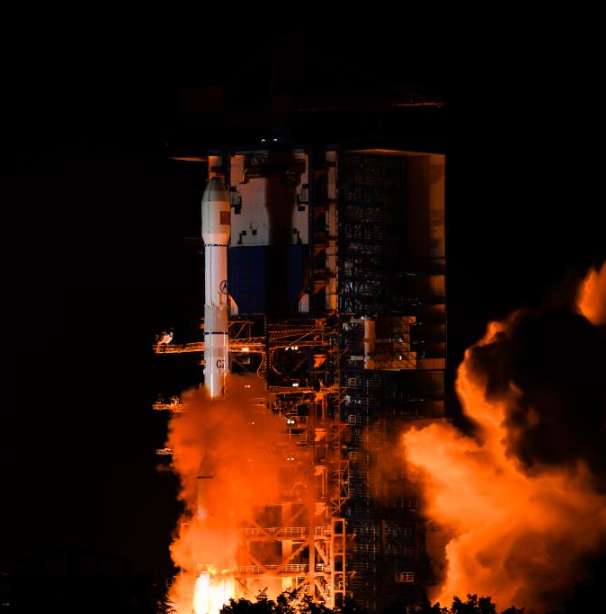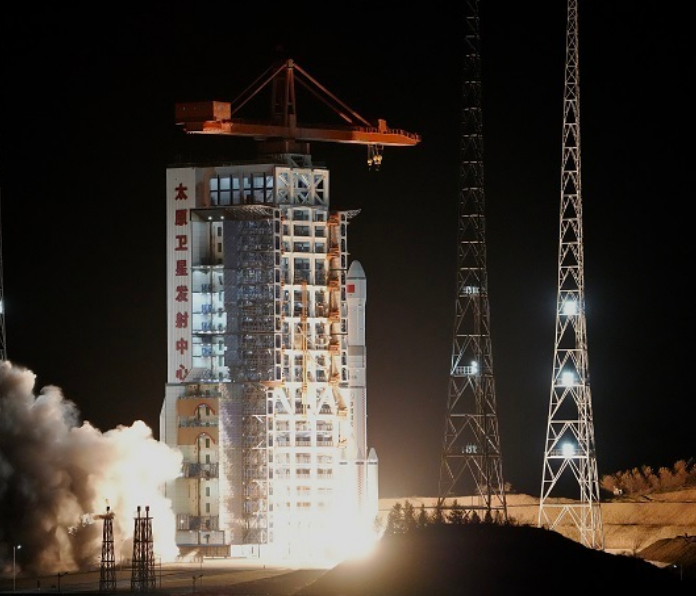25
2023-07
SCMP: Hong Kong inaugurates one of the world’s largest satellite manufacturing facilities as the city unveils its aerospace ambitions
Hong Kong as a place for starting and running businesses has several advantages, namely its status as a member of the WTO in its own right, a separate customs territory and hub of globalisation, its low corporate income tax rate and mechanism for attracting talent,” said Sun Fengquan, Co-Chairman and CEO of Hong Kong Aerospace Technology Group (HKATG) whose subsidiary, ASPACE Hong Kong Satellite Manufacturing Center launched Hong Kong's first satellite manufacturing centre, considered one of the world's largest.
The target market for ASPACE Hong Kong Satellite Manufacturing Center is expected to grow to US$30 billion by 2027. HKATG, Hong Kong’s first commercial aerospace enterprise focusing on satellite network engineering and precision satellite manufacturing, was listed on the HKEX in 2018 and its subsidiary launched two satellites last month from Taiyuan Satellite Launch Center under the Golden Bauhinia Constellation project.
The remote sensing data to be obtained by these satellites will be used in fields such as agriculture, meteorology, marine, resources, environmental protection, urban development and scientific experiment. The Group has successfully launched 12 satellites for its Golden Bauhinia Constellation project so far and plans to manufacture and launch the remaining satellites under the Golden Bauhinia Constellation project during the period from the end of 2023 to 2026.
“Satellite components come from all over the world and no country has a monopoly over its production yet,” said George Lam, the co-chairman of HKATG. “With Hong Kong’s simple tax system, highly efficient customs clearance, skilled manpower and status as a global finance hub, we have the greatest chance at building a comprehensive satellite supply chain system.”
Lift-off for first Hong Kong satellites in Greater Bay network
The newly inaugurated centre is located at the Hong Kong Science Park in Tseung Kwan O, covering a site area of 200,000 sq ft, or three and a half football fields.
Hong Kong’s government unveiled a blueprint last December outlining the direction and strategy of Hong Kong’s innovation and technology development in the future.
“The government will encourage and support the development of leading industries such as advanced manufacturing in Hong Kong, with the aim of realising the city’s ‘New industrialisation’, which will stimulate the development of more other industries, and thus generate more job opportunities for skilled labour and further Hong Kong’s economic diversification,” said Dong Sun, Secretary for Innovation, Technology and Industry of the Hong Kong Special Administrative Region Government.
“The centre will be the most advanced satellite manufacturing centre in Asia in the next 3 to 5 years” said Sun.
The company is also looking to work with partners in Southeast Asia, especially Indonesia, to expand its business, HKATG’s Lam said.
“Indonesia has over 300 million people and the government is pushing for digitalisation and building smart cities, so demand will always be higher than supply. The equator is also the most optimal location for launching satellites, so we hope to find partners that can help us complete this final step of the process,” he said.
The centre is expected to manufacture more than 200 commercial satellites of 30 to 1,000 kilograms annually for communication, navigation, both optical and radar remote sensing, and carbon emissions detection.
Sun said that 15 orders had been received, all for commercial purposes and manufacture of the first satellite was expected to be completed early next year for environmental monitoring and weather forecasting purposes.
An average satellite consists of 10,000 to 12,000 components sourced from around the world, and it takes two to four years to manufacture each satellite, Lam said.
ASPACE’s chairman Sun said by leveraging the city’s advantages the group hopes to decrease manufacturing costs and provide satellite data services at a 20 per cent lower cost.
-
29
2025-05

Tianwen-2 Mission Launched Successfully
At 1:31 AM today, China successfully launched the Tianwen-2 planetary exploration probe from the Xichang Satellite Launch Center using the Long March-3B Y110 carrier rocket.
-
13
2025-05

Communication Technology Experiment Satellite No. 19 Successfully Launched
At 2:09 on May 13, China successfully launched the Communication Technology Experiment Satellite No. 19 from the Xichang Satellite Launch Center using a Long March 3B carrier rocket. The satellite smoothly entered its predetermined orbit, and the launch mission was a complete success.
-
12
2025-05

Remote Sensing Satellite No. 40, Group 02, Successfully Launched
On May 11 at 21:27, China successfully launched the Remote Sensing Satellite No. 40, Group 02, from the Taiyuan Satellite Launch Center using a Long March 6A carrier rocket. The satellite entered its predetermined orbit smoothly, and the launch mission was a complete success.









